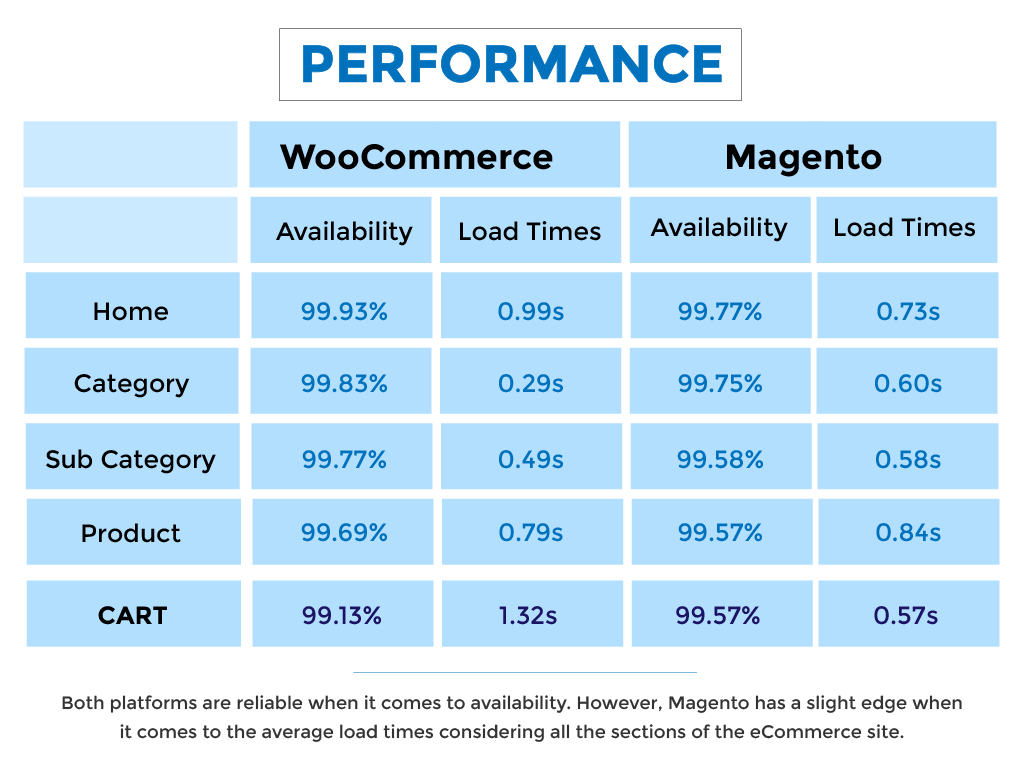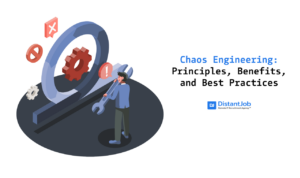If you plan to build an eCommerce website, WooCommerce and Magento are among the platforms you may consider. These two are eCommerce website builders that you can use to create an eCommerce site without coding it from scratch. Choosing between the two might be a challenging task since they are both good and reliable site builders for different categories of users.
However, each has its strengths and weaknesses that you need to know before choosing which one to use. In this article, we will discuss what you need to know about each of these platforms to make it much easier for you to make a choice.
Table of contents
What is WooCommerce?
WooCommerce is an open-source plugin for WordPress for creating eCommerce websites. It was launched in 2011 and has gained popularity over the years, thanks to its simplicity and the freedom it gives users to customize their eCommerce websites. WooCommerce is currently the most popular eCommerce website builder, with a market share of over 40%.
More than 5 million online stores use WooCommerce to integrate eCommerce functionalities into their sites. The fact that WooCommerce is an open-source platform gives users a lot of flexibility to even edit the code if they wish to. This level of flexibility is not available with most site builders in this category.
WooCommerce key features
- Online store templates that can be customized
- Shipping management
- Social media integration
- Email marketing features
- SEO management
- Customizable branding
- Inventory management
- Multi Currency support
- Order management
- And many more
What is Magento?
Magento, now Adobe commerce, is also an open-source platform for building eCommerce websites. It was created in 2008 and later acquired by Adobe in 2018. Magento can create all sections of an eCommerce site, from the catalog to payment to fulfillment. With a market share of about 13.5%, Magento may not be as popular as WooCommerce. However, it is among the top 3 most popular eCommerce website builders.
This platform also has drag and drop tools that you can use to create pages and other sections of an eCommerce site without writing a single piece of code. It also comes with plenty of out-of-the-box functionalities, customization ability, and seamless integration with other third-party tools that can add extra functionality to eCommerce sites.
Magento key features
- Robust page builder
- Order and inventory management
- Product recommendation
- Live products search
- ERP integration
WooCommerce vs Magento
Now that we have a brief background about each of the platforms, let’s look at what each of them has to offer as far as creating an online store is concerned.
1. Pricing
While choosing which of the two platforms to go with, one of the critical aspects you need to consider is the total amount you’ll part with to have an operational eCommerce site. Let’s discuss the detailed pricing for the two.
WooCommerce
Yes, WooCommerce is an open-source WordPress plugin that you install on your website for free. However, to have a functional website, you need to pay for a domain name and hosting, a responsive website theme, website security, backups, shipping, and payments. The average cost for each of these is as follows;
- Domain and Hosting – $100 to $500/ year
- Website Theme – $0 to $200
- Shipping – $0 to $100/year
- Payments – $0 to $360 per year
- Website backups – $100 to $150 per year
- Security – $0 to $300 per year
This amounts to over $1500 in costs per year to create a reliable online experience for your eCommerce. However, there is a possibility of spending less than $200 a year if you choose to go with the starter packages for every service we listed above.
Magento
Magento is also an open-source platform that you can use to create your eCommerce site for free. However, it has premium versions that have unique features that are not available in the free version of the platform. Magento Community is the free version of the platform. The two premium packages are Magento Enterprise and Magento Enterprise Cloud. Let’s look at the costs of each.
Magento community
Magento community is free, but you will have to pay for some extra services to have the site up and running. Some of these fees include;
- Domain and hosting – $100 to $500/year
- Paid extensions – $50 to $500/year
- Themes – $0 to $200 per year
When you add these up, you will have a total of up to $1200 per year if you consider the high-end packages.
Magento Enterprise
The pricing of this package is not fixed. You are charged based on the revenue generated per year. Its Minimal price is $22,000 for $0-$1,000,000 GSR (~0-48000 USD). However, it can go up to $125,000 for $25,000,000-$50,000,000 GSR (~11,81,065 USD-23,62,131 USD). Remember these costs do not include hosting and domain.
Magento Enterprise Cloud
This package is more costly than the previous package because it includes hosting. The average cost of Magento Enterprise Cloud ranges between $40,000 to $190,000 based on the amount of revenue you generate.
Overall, when it comes to pricing, WooCommerce is the ideal option for small eCommerce that don’t need a ton of features that the premium packages Magento offers. But if you have an extensive eCommerce store that can utilize Magento Enterprise and Magento Enterprise Cloud features, they are worth the investment.
2. Performance
When it comes to performance, the major parameters to consider are Availability and Load times. For each of the two platforms, we shall look at the availability and load times of the different eCommerce website sections, including Home, Category, Sub Category, Product, and CART.

3. Extensions and Plugins
Extensions and plugins can be used to further improve the functionality and overall user experience of your website.
WooCommerce
WooCommerce offers hundreds of WooCommerce extensions (free and paid) that users can integrate into their sites to meet their logistical, technological, and marketing needs. Since WooCommerce runs on top of WordPress, users will access over 55,000 plugins and themes available in WordPress’s theme market.
Magento
Magento also offers a variety of free and paid extensions built by their vibrant community of developers, agencies, and freelancers. The Magento Marketplace has about 4000 extensions for various purposes, including customer support, SEO, accounting & finance, marketing, sale, payment & security, content & customization, and reporting & analytics.
Overall, WooCommerce has a slight advantage when it comes to the number of plugins and extensions you will have access to. However, Magento’s marketplace also has almost every extension and plugin that most eCommerce websites need.
4. Easy of Use
When it comes to ease of use, we assess things like setting up the tools in each platform and how is easy it is to use the tools to create and customize the pages.
WooCommerce
WooCommere was built with beginners in mind, so all the tools in this platform are easy to set up and use. Anyone who has basic computer skills and knowledge about the web can set up a WooCommerce site. That is why WooCommerce has a 5-star rating on most review platforms regarding ease of use.
Magento
On the other hand, Magento is built for developers and professionals with advanced technical skills in web development. So, most of its tools may not be user-friendly for the ordinary person. Installing extensions plus creating and customizing pages require users to have technical knowledge.
Overall, WooCommerce is a much easier platform to use for most people. However, this comes at the expense of limited functionality. But if you know what to do, Magento offers way more functions than WooCommerce.
5. Security
Since eCommerce websites deal with payments, security is one of the major factors you need to consider while choosing the tools to build your site.
WooCommerce
The security of WooCommerce sites largely depends on WordPress. Over the years, WordPress has been a very secure content management system. The hacks that have happened on WordPress sites are mainly due to security vulnerabilities of the hosting platform, plugins and themes installed in the site, and weak passwords.
For maximum security, users need to choose a reliable hosting platform, Secure themes, and plugins, and use strong passwords.
Magento
Magento is also a very secure platform that receives security patches frequently. It also has several built-in security functions to help protect all Magento installations and management.
Overall, both platforms meet the minimum-security requirements. However, Magento has a slight edge since it has more built-in security capabilities than WooCommerce.
6. Marketing and SEO
Like any other type of website, eCommerce sites need to be optimized to generate free traffic from search engines. Each of these platforms has built-in marketing and SEO tools that users can use to generate more traffic.
WooCommerce
Sites using eCommerce can take advantage of all the WordPress SEO plugins such as Yoast and several email marketing tools like MailChimp. These tools can enable them to boost their SEO and run marketing campaigns to get more traffic from other sources besides search engines.
Magento
Magento also has built-in SEO tools that users can take advantage of to boost the ranking of their sites in search engines. This platform also has a marketing menu that enables users to manage promotions, communications, user-generated SEO, and content.
Overall, both platforms have reliable marketing and SEO tools that you can use to promote your eCommerce site. You just have to use them right.
7. Support
Since Magento and WooCommerce are both open-source platforms, they have a large user base and community that you can take advantage of if you run into an issue while using any of the two platforms. However, Magento has an edge, especially with their premium packages, since they include getting support from Magento’s customer support team.
Magento vs. WooCommerce Resolution: Which One is Better?
Choosing between Magento and WooCommerce will largely depend on your eCommerce needs. WooCommerce is mainly meant for smaller and medium-sized online stores since it is easier to use and more affordable than Magento.
On the other hand, the paid packages of Magento are ideal for large enterprises that value the extra functionality, performance, and security features that Magento offers. So, you have to start by assessing the needs of your business.
If you´re looking to scale your IT team with WooCommerce experts or Magento developers, reach out to us today. At DistantJob, we have the resources and experience to help companies hire talented remote developers at an affordable cost and 60% faster than the industry average.
FAQs WooCommerce vs Magento
What is Magento good for?
Magento is an eCommerce website builder and management platform that mainly suits large enterprises that can take advantage of the extra functionalities that it offers when compared to the rest of the tools in its category. However, small businesses can also use its free package to get started.
What is WooCommerce good for?
WooCommerce is good for building and managing smaller eCommerce WordPress sites. It is free and easy to use, which makes it ideal for small businesses and startups.
What are other alternatives to WooCommerce and Magento?
The other eCommerce site builders and management platforms include Shopify, OpenCart, PretaShop, and Squarespace.




